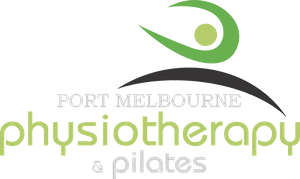
We all know we have nerves all throughout our body. Nerves that tell us when we are in pain, nerves that allow us to tell hot from cold or sharp from blunt, and nerves which tell our muscles and joints to bend/lift/twist. This is the Central Nervous System, the one that we can control with our brain and make decisions and adjustments depending on the situation we are in.
But what about all the other actions the body does without us even knowing about it or realizing? What controls our digestive system, causes us to feel nauseous, or to sweat or blush? This is all under the control of the Autonomic Nervous System (ANS), which most people have never heard of. It’s just as it sounds, automatic. We have very little or no control over this system of nerves, and these responses are brought on by reactions to our environment and emotions.
Autonomic Nervous System
The ANS consists of two parts: the Sympathetic and Parasympathetic nervous systems. Everyone has heard of the “fight or flight” response when we find ourselves in a situation of perceived danger. The Sympathetic Nervous System (SNS) is responsible for dealing with this stress response, and is like the accelerator of the body. It typically speeds things up, increasing heart rate, blood pressure and our breathing, mobilising our body to protect ourselves or to run away. The Parasympathetic Nervous System (PNS) is like the brakes of the body, typically slowing things down, responsible for “rest and digest” and helping to conserve energy.
When the Sympathetic Nervous System is Overactive
If our nervous system detects a threat, real or perceived, the SNS will trigger a flight or flight response. In periods of chronic stress, our body perceives this as a threat, and therefore the SNS can remain in an overstimulated state. That is, the body is constantly in a state of fight or flight response, ready for action and on alert.
Symptoms include:
- Anxiety
- Panic Attacks
- Insomnia
- Poor digestion
- High blood pressure
- High cholesterol
As you can see by the wide range of symptoms the SNS is responsible for many systems of the body. Long term overactivity of the SNS can therefore be very detrimental to our health.
Calming an overactive Sympathetic Nervous System
When activated the PNS is responsible for calming us down. It reduces heart rate and blood pressure, stimulates digestion and creates an increased feeling of well being. The Vagus Nerve is the most influential nerve in the PNS, functioning like a natural reset button. If your SNS needs a “reset” , activating your Vagus nerve will stimulate the PNS, which in turn reduces your experience of stress.
Ways to activate your Vagus Nerve
- Slow, deep breathing (diaphragmatic breathing) https://www.youtube.com/watch/kgTL5G1ibIo
- Meditation
- Yoga
- Tai Chi
- Humming or making an “om” sound
- Spending time in nature
- Mild/moderate exercise such as walking or swimming
- Laughing out loud
- Massage
Once you find a technique that suits you, a daily practice of stimulating your vagus nerve can help relieve anxiety and tension and reduce the build up of stress.
Kalpita Yoga
At PMPP we have been working with Stephanie from Kalpita Yoga for many years. She runs weekend yoga workshops at PMPP, takes clients for 1:1 yoga sessions and provided many online sessions to help clients during Covid. Steph has also run many wonderful sessions for our staff.
If you’re feeling like you need a reset why not try this 5 minute breath meditation with Stephanie from Kalpita Yoga https://www.kalpitayoga.com.au/yogavideos/2019/12/21/meditation-breath-meditation
Steph’s 12 minute upper body release yoga sequence is also great to help relieve stress and tension from the neck and shoulders after sitting at a desk all day.
https://www.kalpitayoga.com.au/yogavideos/2019/6/6/shoulder-chest-and-neck-release-sequence
Steph is running a Yoga Nidra workshop at PMPP on Sunday 28th February. If you would like to attend you can purchase tickets here.
Seek Help
If you’re experiencing several of the symptoms of an overactive SNS we recommend seeing your GP for a general health assessment. The team from New Pathway Psychological Services https://newpathways.com.au/ can also assist with managing symptoms of anxiety and stress.
~Sal

